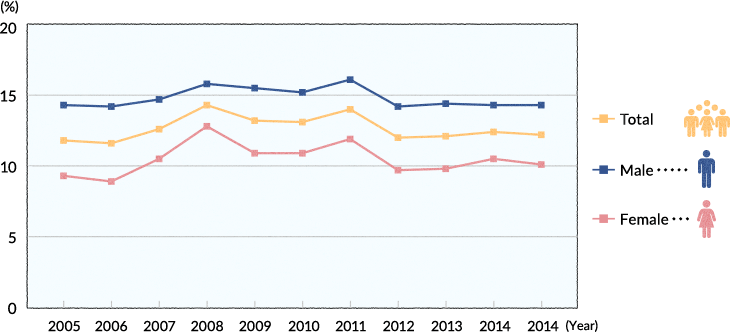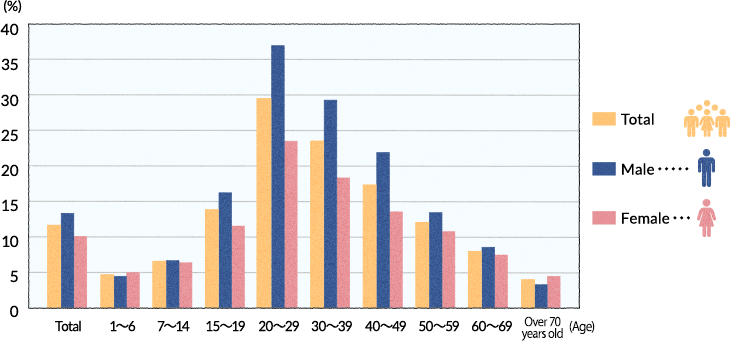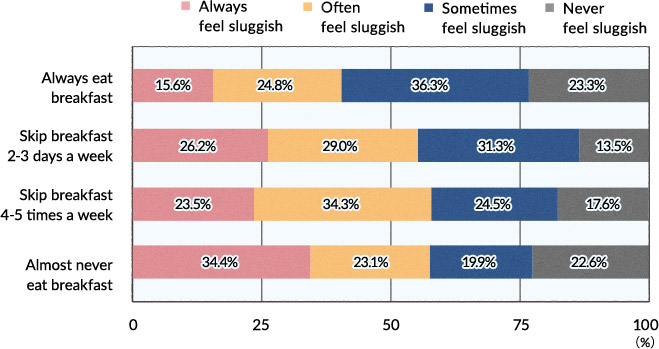The importance of breakfast
Breakfast is the foundation for the day, yet increasing numbers of people are skipping this important meal.
Are you eating a good breakfast? The graph below shows the percentage of people in Japan who do not eat breakfast*, and shows that the number of both men and women who do not eat in the morning is increasing year by year.
- *This also includes people who only eat snacks

Skipping breakfast is most common among people in their 20s, but the problem extends to the young and old too.
The following graph shows the percentage of people who do not eat breakfast, broken down by age. The biggest percentage is people in their 20s, with one in three men and nearly one in four women in this age group skipping breakfast.
People who don't eat breakfast will often have an irregular dinner time, and the foods they eat tend to be nutritionally unbalanced. They will snack after dinner and have irregular eating habits.
Skipping breakfast can make people feel tired, gain weight, suffer from a lack of concentration, and can ultimately be a trigger for lifestyle-related diseases.
Skipping breakfast is also seen among children in both the 1 to 6 and 7 to 14 age groups. With the early years being so important for a child's development, this is a problem that should not be ignored.

Control General Affairs Division, Health Service Bureau, Ministry of Health, Labour and Welfare.
Children who eat breakfast everyday feel less sluggish.
The following graph shows the relationship between skipping breakfast and feeling sluggish in elementary and junior high school students. It is clear that children who eat breakfast every day are less likely to feel sluggish. Skipping breakfast can lead to problems at school, as sluggishness can cause a loss of motivation.
Among those children who almost never eat breakfast, a high percentage respond that they "have a hard time getting up and feel lousy in the morning" and that they "sometimes have no appetite" since they also go to bed late.

Source: Japan Sport Council's "Study on the eating habits of schoolchildren" (2010)






